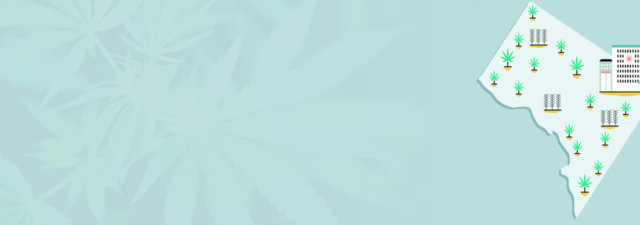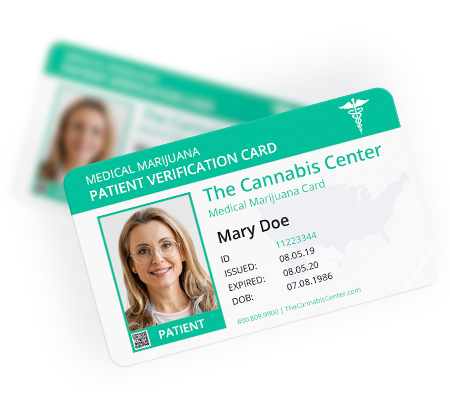
Approved on
Required
Registry Fee
CONSULTATION FEE RANGE
- $200-$300
MMJ PURCHASING LIMITS
- MMJ PATIENTS CAN BUY UP TO THREE OUNCES OF MARIJUANA FLOWER OR ITS EQUIVALENT
HOME CULTIVATION?
- YES
MINIMUM AGE LIMIT
- 18
A significant majority of states now have a medical marijuana program. However, there are a few locations where people assume that MMJ may never happen. South Dakota was one of those states until a stunning development in November 2020. Two ballot initiatives succeeded, one to pass MMJ and the other to legalize recreational cannabis.
Almost 70% of voters said “yes” to Initiated Measure 26, which legalizes medical marijuana in South Dakota. Just over 54% were in favor of Constitutional Amendment A, the legislation that permits adult-use cannabis in the state.
While the recreational program was halted, the MMJ program has gone ahead, with sales underway. This guide outlines how to get an SD medical card to access medical marijuana in the state legally.
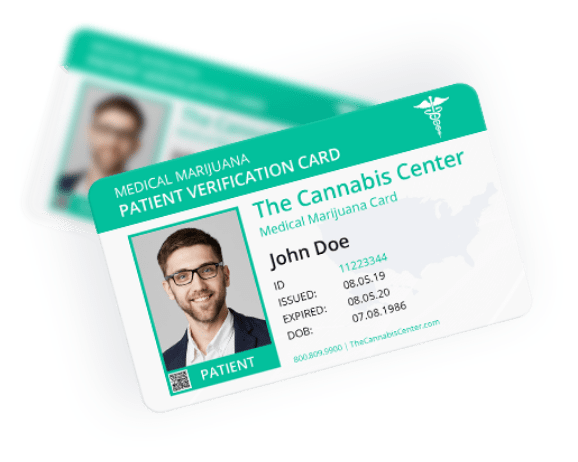
Need a Medical Marijuana Card ?
Let us help by Starting HereSouth Dakota Medical Marijuana Laws
With recreational marijuana NOT legal in South Dakota, possessing up to two ounces of the substance is a misdemeanor and carries a possible penalty of one year in prison. If found with over two ounces, you could be charged with a felony and spend up to 10 years in prison, depending on how much marijuana is on your person.
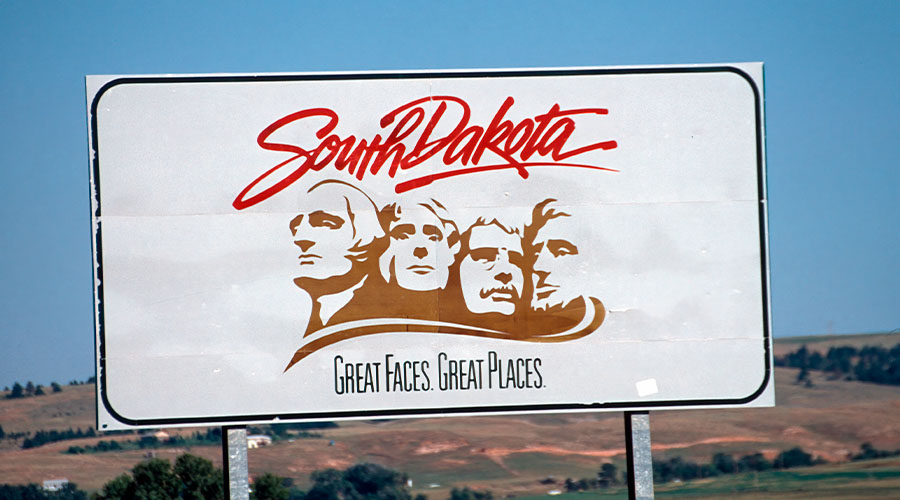
The illegal sale of any amount of marijuana in SD is a misdemeanor with a mandatory minimum prison sentence of 15 days. The sale of more than half an ounce is a felony; the punishment is a possible two-year jail term. Cultivation penalties are based on the aggregate weight of the plants found. The crime of growing weed could see you charged with simple possession or possession with intent to distribute.
Finally, the state has very strict laws regarding the possession of hash and concentrates. Possessing any amount is a felony, and you could spend up to 10 years in prison.
Therefore, if you want to use weed in South Dakota, it is wise for you to apply for a medical marijuana card.
How to Get a Medical Marijuana Card in South Dakota
Now that the South Dakota medical marijuana program is fully operational, you can apply by following these steps. Overall, it is a relatively straightforward process.
Step 1 – Get in Touch with an SD Healthcare Provider
Finding a cannabis-friendly physician is the most difficult aspect of getting an MMJ card in South Dakota. As the program is relatively new, there aren’t many doctors willing to certify patients, although the number is growing. However, you can’t begin the medical marijuana application process without being certified by a doctor.
Step 2 – Schedule a Consultation
Once you find a suitable physician, bring your medical records and prepare to discuss why you need MMJ. The doctor will ask why you believe cannabis is a suitable option for your medical condition. If they believe you will benefit from MMJ, they will provide you with a medical certification issued through the program’s online patient portal.
Physicians must create an account on the official South Dakota Medical Cannabis Program website to provide written certifications.
Step 3 – Sign up for a South Dakota State Government Account
If you receive a doctor’s certification, you’ll receive an email telling you to create an online account with the state’s MMJ program. You must then complete the application form. In one section, you have the option to cultivate marijuana, which comes with an additional fee. After completing your application, you must wait for approval from the state’s Department of Health (DOH).
Step 4 – Complete the Caregiver Application (If Applicable)
If you intend to register a caregiver, the person you choose must also create an account and wait for DOH approval.
Step 5 – Visit a Dispensary
Once the DOH approves your application, you will receive your MMJ card in the mail. Only then can you start shopping at a licensed marijuana dispensary in South Dakota.
Who Can Apply for a Medical Marijuana Card in SD?
To apply for a medical marijuana card in SD, you must be a state resident aged 18+ and have one of the qualifying medical conditions.
Cost of MMJ Card in SD
The medical marijuana cost in SD includes a nonrefundable fee of $75, although the price is reduced to $20 if you qualify for a low-income discount.

There is also an additional $20 fee for a two-part registration card (if you also want to grow marijuana at home) and another $20 for additional caregivers. The consultation fee is likely between $200 and $300, depending on where you go.
SD MMJ Card Qualifying Conditions
The list of SD medical marijuana card qualifying conditions is fairly short at present.
According to the law, MMJ patients must have a “chronic or debilitating disease or medical condition.” This list includes:
- Glaucoma
- Cancer
- Crohn’s disease
- Epilepsy and seizures
- PTSD
- HIV/AIDS
- ALS
- MS
The DOH may allow additional medical conditions in due course. Furthermore, your physician may certify you for another condition not on this list if they feel it is a chronic or debilitating disease or medical condition that results in certain symptoms.
How Long Does It Take to Get a Medical Marijuana Card in SD?
The DOH will process your application once it receives your physician’s certification. There is no definitive timeline, although some providers claim they can help you get your South Dakota MMJ card within 30 days.
How to Renew My South Dakota Medical Card?
Renewing your South Dakota MMJ card involves scheduling a new consultation and going through the entire process again. You have to pay the consultation fee and a $75 renewal fee.
Other Information on the SD Medical Marijuana License Process
As the program is still fairly new, people interested in getting MMJ in South Dakota may not know its intricacies. We aim to clear up any confusion by answering the following FAQs.
What Types of Cannabis Can I Purchase in SD?
Apart from being allowed to purchase and smoke marijuana flower, South Dakota MMJ patients can also buy concentrates, edibles, and vape products.
How to Get a Medical Marijuana Card in SD Online
Although telemedicine is legal in South Dakota, it does not apply to medical marijuana card appointments. In 2021, the House voted against a bill that would have allowed telemedicine for MMJ consultations. Therefore, you have to see a physician face-to-face.
Can I Register My Child for Medical Marijuana in SD?
Yes. Minors can apply for MMJ in South Dakota. On the application form, a parent or legal guardian must attest to the page’s contents by filling out the fields with asterisks.
Where Can I Purchase MMJ in South Dakota?
Currently, there are over 70 licensed dispensaries in the state, and that figure is certain to grow. The DOH is currently reviewing applications for dispensaries and businesses interested in cultivating, manufacturing, and testing marijuana. Unity Rd. had the honor of being the first state-licensed MMJ dispensary to open in South Dakota. It opened its doors to the public in July 2022.
How Much Cannabis Can I Buy & Possess?
According to Initiated Measure 26, eligible MMJ patients can buy and possess up to three ounces of marijuana flower.
Can You Grow Marijuana in South Dakota with a Medical Marijuana Card?
Yes. MMJ patients can grow up to two mature plants and two non-mature plants at home.
Where Can I Use My MMJ?
You can only use cannabis on private property.
Can I Take My MMJ to a Different State?
No. It remains illegal to transport marijuana across state lines. Also, South Dakota does not recognize out-of-state MMJ cards.
What Are the Caregiver Rules?
A caregiver is legally required for all minors who apply for MMJ. Patients aged 18+ can only designate one caregiver unless the doctor’s certification letter specifies that more than one is required. Caregivers must be 21+ and can’t have been convicted of a disqualifying felony offense. They can assist a maximum of five MMJ patients unless their patients each live in a health care or residential care facility where the caregiver works.
What If I Lose My Medical Card in South Dakota?
There is no clearly defined protocol for when someone loses their MMJ card. Getting in touch with the DOH immediately is best because you can’t access medical marijuana without having the card in your possession.
When Did Medical Marijuana in South Dakota Become Legal?
MMJ became legal in South Dakota after almost 70% of voters said “yes” to Initiated Measure 26 in November 2020. Although there was opposition to the medical marijuana program, it became official in July 2021. The state began to go through the process of creating the program, allowing doctors to access the medical cannabis portal and issuing registration certificates to dispensaries.
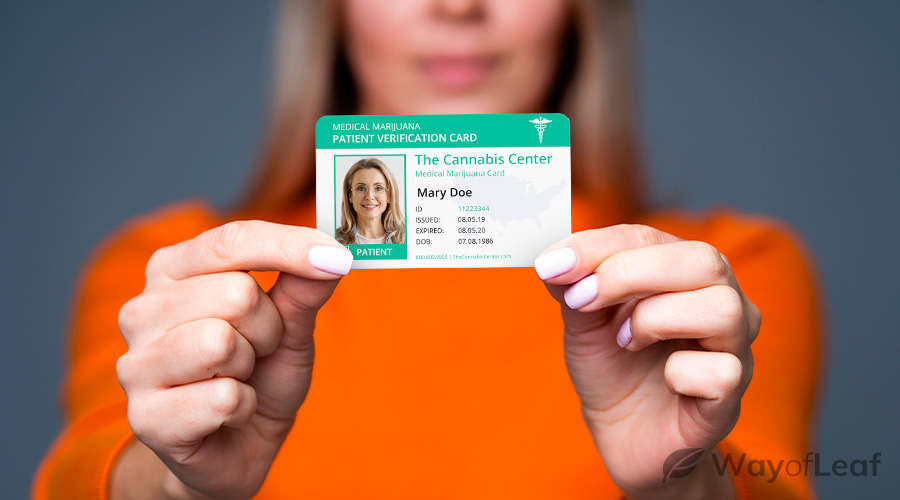
Finally, in July 2022, the first MMJ dispensary opened in South Dakota, with many more likely to follow.
However, recreational marijuana remains illegal in SD. In November 2021, the state’s Supreme Court ruled that Amendment A was unconstitutional. In November 2022, voters rejected Initiated Measure 27; yet another major blow for marijuana activists in the state.
How to Get a Medical Marijuana Card in Sioux Falls
The program is still new, and prospective MMJ patients find it tricky to locate doctors willing to provide certification. If you live in Sioux Falls, you should have better access than most, given the city’s large population relative to the rest of the state.
MMJ Card for Veterans in SD
Military veterans may benefit from free certification, depending on the provider. Certain services hold monthly sweepstakes where they award a specific number of veterans a free MMJ consultation. Other companies offer special veteran discounts for consultations.
Final Thoughts on Getting a South Dakota Medical Marijuana Card
Medical marijuana is finally on sale in South Dakota, and the state’s DOH accepts patient applications. If you believe you need MMJ, it is essential to apply for the card as it offers legal protection. The state currently classes the possession of any amount as a misdemeanor crime, and you could spend up to a year in prison if caught.
With a South Dakota MMJ card, you can buy and possess up to three ounces of marijuana flower or its equivalent. It is relatively expensive to apply, but for those who find that medical marijuana helps ease symptoms of their conditions, it is a price worth paying.





![How to Get a Puerto Rico Medical Marijuana Card [Your PR Guide]](https://wayofleaf.com/wp-content/uploads/2019/01/wol_how-to-get-a-puerto-rico-medical-marijuana-card-640x225.jpg)



